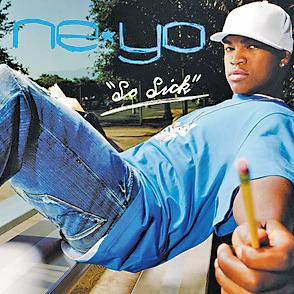
2 minute read
The hidden power of heartbreak
By Abigail Kim THE MIRROR STAFF
SO SICK | The Cardigans
Advertisement
Rap/R&B

Filled with emotional lyrics about the ongoing cycle of wanting your relationship back after a breakup, this early 2000s hip-hop sound is nostalgic and just comforting enough to get you through your loneliest moments.
Death, breakups in the pouring rain, regret table ex-lovers, barbed words that can’t be taken back, longing for better times, self-loathing and anxiety. These reflective topics define to day’s sad music, a genre teenagers are absolutely enthralled by.
Spotify revealed that “sad” is the most-searched term among Gen-Z listeners across the globe. As younger generations gravitate towards depressing lyrics and heartwrenching melodies, it’s clear that heartbreak has an enchanting allure.
GLIMPSE OF US | Joji
Alternative/Pop
This is an emotionally packed track that deals with the struggle of currently being in a relationship but still thinking about the one that got away. Joji’s lyrics truly portray the regretful excruciating situation and are undoubtedly relatable to those who find themselves in a similar situation.
ALL TOO WELL | Taylor Swift
Country/Pop
Through vivid lyrics and smooth guitar riffs, the Red singer poignantly reflects on fond memories with a past lover, knowing all too well that the spark of love has died. If you’re hopelessly yearning for the euphoria of a love that once was, this catchy, agonizing track is worth the listen.
MILLION YEARS AGO | Adele
Pop The queen of penetrating lyrics and impressive belts, Adele longingly revisits the carefree times of a million years ago in this delicate acoustic track. She morphs the pain of losing innocence as one matures into an all-consuming anxiety, and the resonant lyrics are sure to send a few tears down your cheeks.
Psychology is largely responsible for our melancholic music obsession. Psychology Today has labeled this “The Tragedy Paradox,” or the strange pleasure found in the aesthetic of sad emotions.
On a biological level, the Tragedy Paradox can be attributed to prolactin, a hormone associated with coping mecha nisms. A 2019 Psychology Today article describes how prolactin churns out feelings of calmness to remedy mental pain. When sad music tricks the brain into discharging prolactin through compensatory responses, a pleasurable group of opiates remains that relieves tension and distress.


Beyond hormonal processes, sad music can kindle nostalgia in listeners. Nostalgia accompanies a heart-aching longing for the past, a major theme in songs by Adele and Taylor Swift.

We’ve all felt that bittersweet pang when recalling foregone family gatherings, carefree days in elementary school and our old favorite songs. On nights when you crave the bliss of the past, blast Lana Del Rey and let a tidal wave of overwhelming nostalgia wash over you.
When I connect with a tear-jerking song, an unexplainable ache blossoms in my chest, and I dive into a rabbit hole of over-analyzing the words. Bittersweetly, I relive nostalgic days in the park with my friends and singing with my dad during long car rides. I’m reminded that the seasons won’t stop changing, despite our strong desire for the good times to stay.
Just as a riveting novel or movie transports us to different worlds, depressing songs provide doors for listeners to escape through vicarious emotion. Heartbreak anthems are the ultimate coping mechanism, relieving










